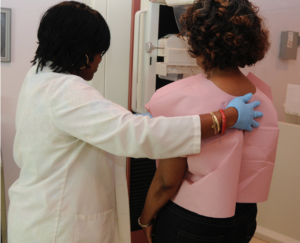
Four major cancer groups in the U.S., including the American Cancer Society, presented the new analysis Monday.
Among the results of the analysis was the discovery that Black women have nearly twice the rate of the deadliest form of breast cancer.
They were also found to have the highest mortality rates across all forms of breast cancer.
The study is extremely troubling and driving researchers to figure out why exactly these trends exist and what is putting Black women at such a substantial risk when compared to their white counterparts.
While the answer isn’t clear just yet, the findings are pushing researchers to reconsider their theories about poverty driving Black women’s high breast cancer rates.
In the past, researchers have long believed that poverty was to blame for the troubling trend because Black women often delayed tests and treatments when facing financial struggles.
The analysis certainly doesn’t disprove this theory, but it does confirm that other factors are also to blame.
One of these new factors, perhaps the most concerning of them all, is biology.
“There were actually other clues that there might be some biological differences in breast cancer as well,” Dr. Lisa Newman, a surgical oncologist specializing in breast cancer, said, according to CBS News. “This report confirms that suspicion. Breast cancer afflicts African-American women in different ways.”

What can be challenged, however, are the mortality rates.
Poverty may not have a substantial impact on causing breast cancer, according to the analysis, but it is certainly still a key player in determining how soon Black women will be able to catch cancer and begin treatment.
When Black women continue to delay screenings and treatment options, they could run the risk of going undiagnosed for years and allowing the cancer to grow worse.
This would ultimately start to chip away at their chances of survival.
That’s something Newman stressed.
She noted the significantly greater chances of survival when even the most serious forms of cancer are caught in the early stage, and that could be particularly key for Black women.


